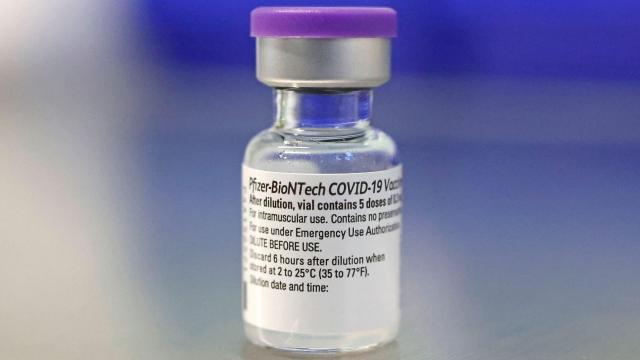New research from Israel offers some unsurprising but reassuring news on the safety of covid-19 vaccines. The study found that the Pfizer/BioNTech mRNA vaccine was not associated with a higher risk of most potential adverse events. And for rare suspected complications such as myocarditis, the risk was still substantially higher in those who got covid-19.
When symptoms show up after taking a drug or vaccine, they’re known as adverse events. These events may be true side effects of a treatment, but they may have happened regardless of the drug. One key way to determine the risk of a potential side effect is to see how often a population of people who received the treatment experience these symptoms compared to those who didn’t take the treatment, the latter being a real-world control group. And that’s what these researchers did, combing through data from the largest health care system in Israel from the start of the vaccination campaign late last year. The study collectively involved more than a million people.
The researchers compared the rate of adverse events documented in vaccinated people to unvaccinated people matched up in age and other demographics. Ultimately, they found that the vaccine wasn’t associated with a higher risk of most adverse events in the 42 days after vaccination. There were some events with a stronger link to vaccination, though. These included appendicitis, swollen lymph nodes, and myocarditis (heart inflammation). But when the researchers then looked at people with confirmed covid-19 and compared them to vaccinated people, the difference was stark.
Potentially severe adverse events much more common in the infected than in the vaccinated. For instance, the rate of myocarditis in the vaccinated was 2.7 cases documented in every 100,000 people, but it was 11 cases per 100,000 in the infected — a fourfold difference. There were also other conditions that vaccinated people didn’t have any added risk of experiencing, but that were more likely to show up in people who contracted covid-19, such as heart attacks, kidney damage, and pulmonary embolisms.
“[O]ur results indicate that SARS-CoV-2 infection is itself a very strong risk factor for myocarditis, and it also substantially increases the risk of multiple other serious adverse events,” the authors wrote in their study, published Wednesday in the New England Journal of Medicine.
While it may seem obvious that taking a vaccine to gain immunity to a disease will be safer than catching the disease itself, it’s always important to keep an eye out for any major side effects that might have gone unnoticed in clinical trials.
Since their authorisation last year, scientists have found that vaccinated people can have a higher risk of some adverse events that weren’t documented in the original clinical trials, including myocarditis in those who get an mRNA vaccine like the Pfizer or Moderna shot. And there have been cases of serious illness and even deaths linked to vaccines, such as the death of BBC journalist Lisa Shaw in May following a rare blood clotting condition tied to the AstraZeneca vaccine. But so far, all of the real-world data has shown that these sorts of serious events remain very rare, while covid-19 deaths and long-term complications are far more common. In the U.S. alone, vaccines may have prevented up to 140,000 deaths by early May. In other words, the benefits of covid-19 vaccination continue to vastly outweigh any risks.
